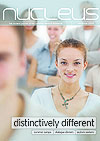However, being a surgeon, Paul Brand brings to attention some positive attributes to being a fat cell. They insulate against cold, give organs like the kidneys a cushion against shock and most importantly provide fuel for the body when supplies around are diminished.
What happens, however, when a fat cell decides to be disloyal to the greater need of the body? What happens if it continues to grow and bulge, ignoring checks on growth and choking out normal cells? Dr Brand describes this as analogous to a lipoma or cancer. Furthermore, he extends the analogy between 'a cancer in the physical body and mutiny in the spiritual body of Christ'. If wealthy people are likened to fat cells, they can be very useful in the church when it comes to hospitality and generosity. However, what happens when the wealthy or 'we in the west' as Dr Brand exclaims, 'get caught up in a competitive spiral with others around us and become oblivious to the needs of the rest of the world?'
Brand has challenged me to recognise what a privileged position I occupy as a medical student in a well-resourced country. In light of this, I should help those who are less fortunate. As Jesus tells us simply but profoundly, 'freely you have received, freely give'. (2)
Brand's strength lies in his ingenious use of analogy. He asks: why are fruits like apples and pears weighted? The answer is that when they fall to the ground, they make a slight indentation in the soil, and contain enough 'meat' to nourish the seeds inside. The question then comes to you, as good fruit-bearing Christians, what impact are you leaving behind?
































